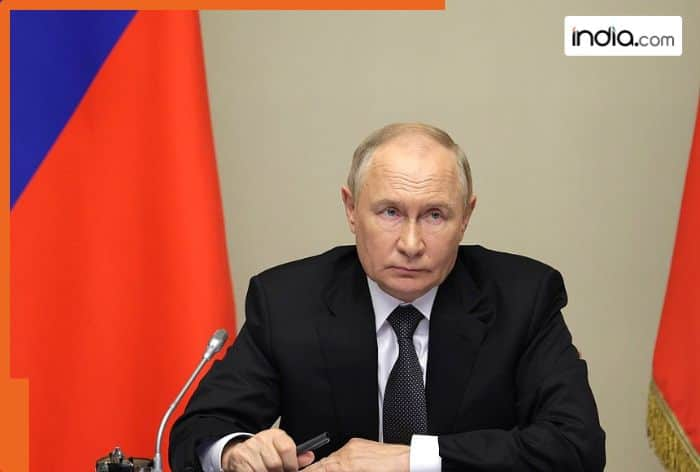Russia’s unexpected intervention in the Pakistan-Afghanistan conflict marks a significant turn of events, raising concerns about why President Putin feels increasingly threatened by the unfolding situation.

Kabul: Tensions are rising along the Pakistan-Afghanistan border, with both countries carrying out cross-border attacks across the Durand Line. Afghanistan has a complicated history with Pakistan. Although Pakistan welcomed the Taliban in Kabul as a natural ally, the Taliban government has proven to be less cooperative than Pakistan had hoped. The current Talibani regime is trying to form a “government” as a metamorphosis from a militant group, aligning itself with the rhetoric of the state. According to Al Jazeera, the regime is also seeking to build a relationship that goes beyond over-reliance on Pakistan.
The Pakistan-Afghanistan conflict took a major turn with Russia’s intervention. Why does President Putin feel threatened?
Early on December 29, Russian Foreign Ministry Spokesperson Maria Zakharova expressed Russia’s concern about the escalating tensions along the Pakistan-Afghanistan border and called for restraint on both sides. Russia’s unexpected intervention in the Pakistan-Afghanistan conflict marks a significant turn of events, raising concerns about why President Putin feels increasingly threatened by the unfolding situation.
According to Russia’s TASS news agency, Russian Foreign Ministry spokeswoman Maria Zakharova expressed concern over the escalating tensions along the Pakistan-Afghanistan border, stressing that both military and civilian personnel are affected by the conflict. . He called on all parties to exercise restraint and pursue constructive dialogue to resolve differences peacefully.
“Moscow is concerned about rising tensions on the Pakistan-Afghanistan border, where not only military personnel but also civilians have been killed in gun battles,” Zakharova said, according to Russia’s Tass news agency. “We call on all parties concerned to show restraint and engage in constructive dialogue, with the aim of resolving all differences peacefully.”
The statement came in the wake of a series of violent clashes between Pakistan and Afghanistan. Earlier this month, tensions escalated after Pakistani airstrikes hit refugee camps in Afghanistan’s Paktika province. The attack killed 46 people, including women and children, according to the Taliban.
In a move seen as revenge, the Taliban attacked a Pakistani border post in Upper Kurram district of Khyber Pakhtunkhwa province on Saturday. Pakistani media reported that the assault claimed the life of one soldier and injured 11 others.
Additionally, tensions between Pakistan and the Afghan Taliban have been rising for some time due to the continued presence of TTP militants in Afghanistan. Pakistan accuses the Afghan Taliban of harboring these militants, but the Taliban insists it is not cooperating with the group.
Pakistan has repeatedly expressed concern about militants using Afghan soil for cross-border attacks, particularly in areas such as Khyber Pakhtunkhwa and Balochistan. Prime Minister Shehbaz Sharif addressed the issue last week, urging the Afghan government to take decisive action against the TTP and stressing that attacks from mainland Afghanistan are a “red line” for Pakistan. He also said that Pakistan is open to dialogue with Kabul, but it cannot take place in parallel with the ongoing offensive.


